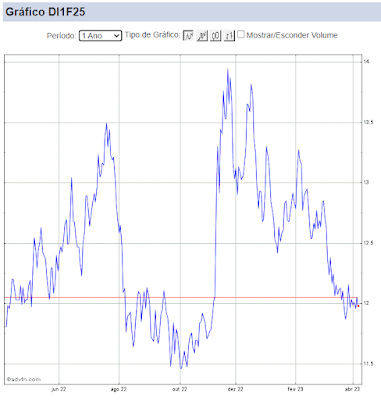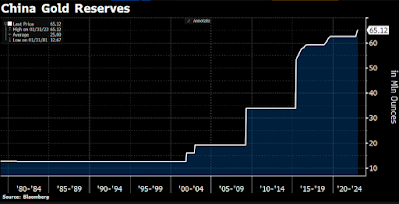Sem respiro...
Brasil - O domingo trouxe mais uma onda de notícias negativas para o quadro econômico local. Segundo a Folha, o governo vai deixar a reforma trabalhista de lado para focar na reforma da previdência. Contudo, em outra matéria do mesmo jornal, o artigo afirma que a reforma da previdência deverá encontrar enormes dificuldades de aprovação no Congresso. De acordo com o Estado, o governo recuou de sua intensão em reduzir o crédito subsidiado do BNDES. Agora, o artigo afirma que o governo irá manter algumas linhas de crédito a juros baixos, com o objetivo de estimular a infraestrutura do país.
Enfim, como tenho insistido incessantemente nas últimas semanas, parece que estamos migrando a passos largos para um caminho sem volta. Desde a saída de Joaquim Levy, não vimos uma guinada brusca em direção a "nova matriz econômica". Todavia, fica cada vez mais evidente que medidas pontuais e localizadas, mas cada vez mais corriqueiras, estão sendo adotadas nesta direção. Acredito que os ativos locais não estejam devidamente precificados para este cenário, especialmente o BRL.
Externo - A situação no Oriente Médio, mais especificamente na Síria, parece ter avançado em uma negativa e perigosa direção no final de semana. O Primeiro Ministro russo afirmou, em uma conferência global sobre segurança na Alemanha, que podemos estar a um passo de uma nova Guerra Fria. Com Russos do lado Sírio, e com os Turcos (e aliados) dando suporte aos oposicionistas, a situação na região parece não apenas longe de uma solução, mas em direção a um conflito geopolítico ainda mais acirrado.
Os mercados financeiros da região abriram o domingo em forte alta, seguindo o "short squeeze" superior a 10% no petróleo na sexta-feira. Contudo, terminaram o primeiro dia da semana sobre forte pressão.
Enfim, como tenho insistido incessantemente nas últimas semanas, parece que estamos migrando a passos largos para um caminho sem volta. Desde a saída de Joaquim Levy, não vimos uma guinada brusca em direção a "nova matriz econômica". Todavia, fica cada vez mais evidente que medidas pontuais e localizadas, mas cada vez mais corriqueiras, estão sendo adotadas nesta direção. Acredito que os ativos locais não estejam devidamente precificados para este cenário, especialmente o BRL.
Externo - A situação no Oriente Médio, mais especificamente na Síria, parece ter avançado em uma negativa e perigosa direção no final de semana. O Primeiro Ministro russo afirmou, em uma conferência global sobre segurança na Alemanha, que podemos estar a um passo de uma nova Guerra Fria. Com Russos do lado Sírio, e com os Turcos (e aliados) dando suporte aos oposicionistas, a situação na região parece não apenas longe de uma solução, mas em direção a um conflito geopolítico ainda mais acirrado.
Os mercados financeiros da região abriram o domingo em forte alta, seguindo o "short squeeze" superior a 10% no petróleo na sexta-feira. Contudo, terminaram o primeiro dia da semana sobre forte pressão.
Na China, um importante membro do PBoC deu uma extensiva entrevista para mídia local neste final de semana. Minha impressão pessoal é que existe um enorme senso de negação nos policy makers chineses neste exato momento. Segue alguns trechos da entrevista, retirados de um artigo da Bloomberg:
Zhou stuck to the script, saying China’s strong economic fundamentals provide no basis for yuan depreciation in real effective terms and speculators can’t be allowed to define the mood in the markets. He appears to push back the timetable for liberalization, saying the central bank is patient and wants to make progress over the course of the 13th Five Year Plan. That reinforces Bloomberg Intelligence Economics’ view that the immediate outlook is for yuan stability. Zhou’s remarks leave the central bank with room for discretion. On the one hand, he says the market must be respected even when it reflects speculative sentiment. On the other, the central bank should push back against speculators and herd mentality when necessary to maintain basic stability. The central bank has already moved away from a peg to the U.S. dollar. But conditions are not yet ripe for management against a basket of currencies. BI Economics’ view is that leaving the central bank with room for discretion has its advantages, especially in a time of transition. But leaving the markets guessing also comes at a cost in heightened volatility. While there is uncertainty on whether the market or the government is in control, and whether the dollar or the basket is the focus, the central bank’s messaging on the yuan will remain confused. Zhou’s remarks may preview China’s line of argument at the upcoming meeting of Group of 20 finance ministers and central bank governors. Zhou says quantitative easing in the U.S. supplied the funds that have empowered the speculators who are currently destabilizing global financial markets. BI Economics’ view is that the chances of a grand bargain between major central banks when they meet in Shanghai on Feb. 26-27 is remote. The yuan’s internationalization is a “wavy process,” according to Zhou. He hints that the process could slow if speculation dominates in the foreign exchange market. That suggests yuan internationalization is not the central bank’s first priority and may not be a main constraint to China’s foreign exchange policy. Zhou said tightening control over the capital account would be neither effective nor helpful for China. The government will continue to facilitate cross-border trade and investment, while also increasing efforts to tackle illegal capital flows such as money laundering. That may ease investors’ concerns about China implementing stricter capital account rules.


Comentários
Postar um comentário